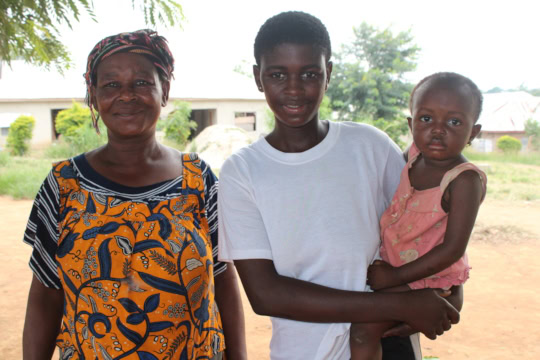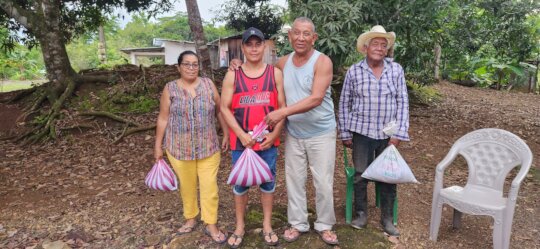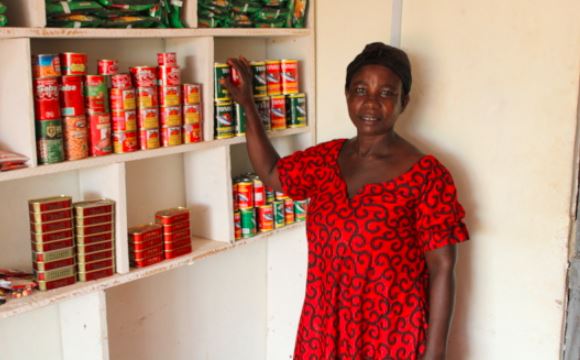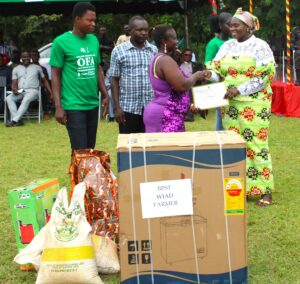Using Instant Messaging Technology to Share Information with Corn Producers in Nicaragua

Jorge, Nicaragua Country Director, communicating with the SHI network across Nicaragua
By Jorge Luis Campos Solis, SHI Nicaragua Country Director. Translated and edited by William Edwards, SHI Board member, and Caroline Scott, SHI Communications and Development Officer.
Editor’s note: For the past several months political unrest in Nicaragua has made traveling between towns and cities difficult, and the Self-Help International (SHI) staff have had to suspend workshops at the Fred W. Strohbehn Training Center at Quinta Lidia, as well as limit visits to the communities where they work. Jorge Campos, Nicaragua Country Director for SHI, has taken advantage of the circumstances to develop an electronic communications network with farmers in the high-protein corn (QPM) program, using WhatsApp, an instant messaging service. Following is his description of how he uses this network to stay in touch even when travel is difficult.
Background:
We have always kept attendance lists from educational events held at the Fred W. Strohbehn Training Center. We started asking for cell phone numbers from the attendees in order to stay in touch with the leaders about the progress and achievements of the producers in the high protein corn (QPM) production program. One day, talking with some farmers, I pointed out that with cell phones, we have not only a telephone, but a source of information about corn production technology, including cultivation, pest management, disease and weed control, fertilization, and post-harvest management, right in the palms of our hands.
I told them, “I can send you all the information about QPM corn: how to plant double-row corn, the distances and densities for sowing seed, the number of seeds and plants that fit in one hectare, a technical guide for agronomic management, a seasonal calendar of agricultural activities, the quantity, formulas and timing of fertilization and pest control, and the products to use.”
Today a farmer in Nicaragua can buy a smartphone for $30 USD. The farmer’s children are the ones who download and use apps such as WhatsApp, a free messaging service available online. We advise the farmers that their children can help them use their phones to learn more about corn production technology and other valuable information.
Implementation:
Farmers in the QPM seed production program received the following message:
Friend, to stay well informed and receive messages from the Self-Help International office in Quinta Lidia, send a message to 89*****3 to be added to our contacts and receive relevant updates about our corn program. Include your name, community, municipality, department, region, cell phone number, and the text, “Include me in the QPM Corn Technology group.”
To date we have more than 250 contacts from the Rio San Juan and Ochomogo areas, including farmers, technicians and agro-service owners. The network has been extended to include community water system leaders and women from the micro-credit program, all of whom receive our communications and information through WhatsApp.
WhatsApp is not a social network, but unlike other messaging applications, you can store and consult messages, photos, and videos, which connects us with the users. So if a farmer has a concern and asks me, I will answer, and if I notice that my answer can help other farmers, I can share it with the rest of the contact list.
Sharing Knowledge:
Some farmers have been directly involved in the corn production seminars, while others have only seen the information by WhatsApp and have put it into practice. Now, the farmers send me photographs, videos and messages about their corn production to share with the other members of the QPM network.
When you add messages, diagrams, tables, photos and videos, they are auto-saved in your cell phone so you can continue to consult them. Sharing photos and videos with farmers allows them to revisit the lesson as many times as necessary, and enables them to share information with other farmers who are not in the program. It’s like a virtual training module.
Using technology for mass communication allows us to be in close communication with people even when they cannot travel to meetings or we are unable to visit them. We can send out critical information in a timely manner and share real life experiences among the group.




